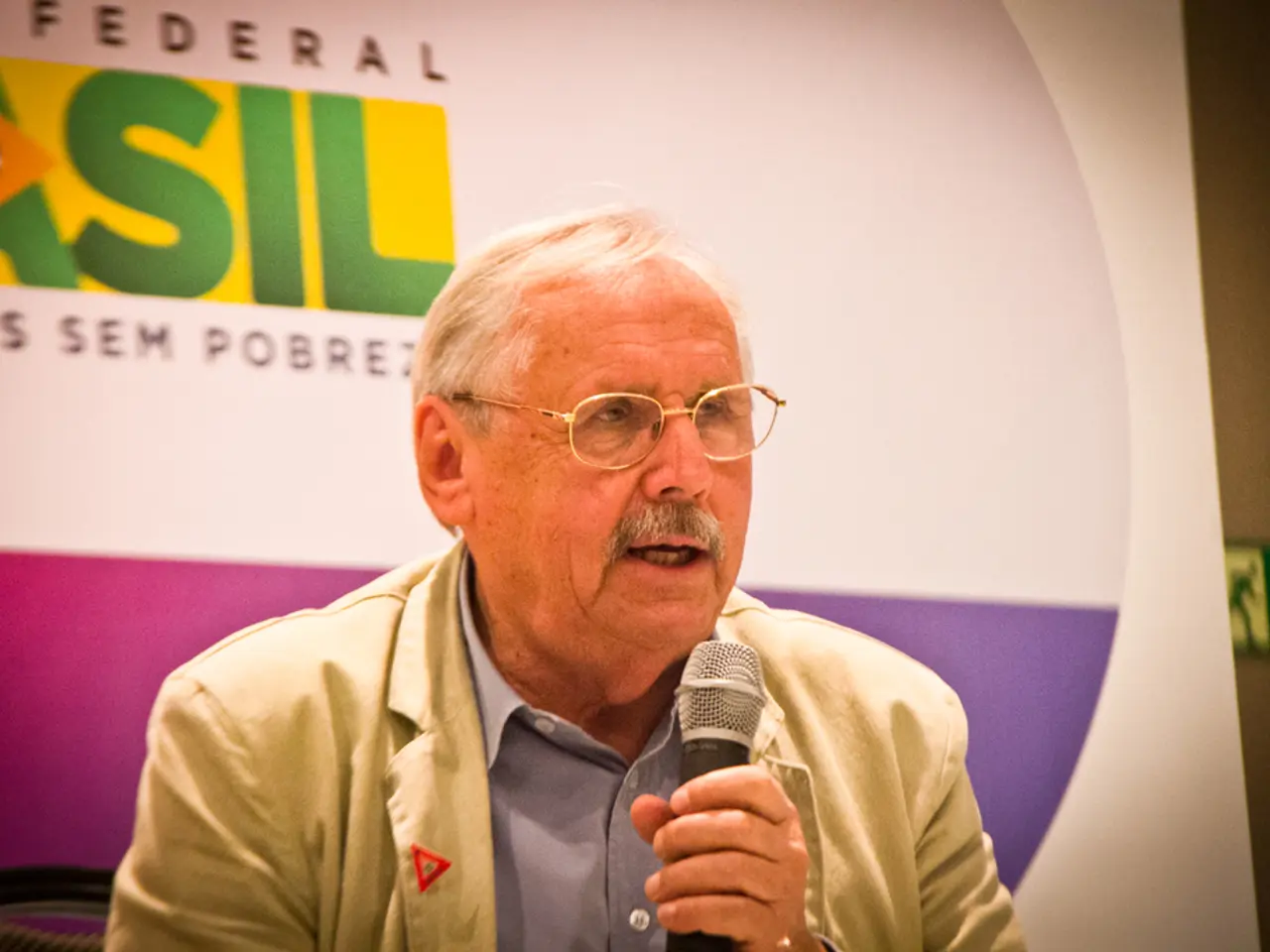War discussions in Israel contemplate escalation amid stalled ceasefire negotiations in Gaza
In the ongoing conflict between Israel and Hamas in Gaza, negotiations for a hostage and ceasefire deal remain stalemated with no finalized agreement as of early August 2025. Egypt, Qatar, and the United States are mediating the talks, aiming to achieve a ceasefire and the release of hostages [5][4].
The key points of contention revolve around the terms of the ceasefire and the release of hostages. Hamas has stated that it would release the estimated over 100 hostages if a comprehensive ceasefire is agreed upon. The current discussions have centred around a two-month ceasefire during which 10 living and 15 deceased hostages would be released in exchange for Palestinian detainees held by Israel [2][4].
Israel, on the other hand, is weighing the possibility of a full military takeover of Gaza but is warned by its own military leadership about the high risk of severe casualties and potential danger to hostages. Israeli Prime Minister Netanyahu has rejected proposals that would allow Hamas to continue governing Gaza or that involve permanent ceasefire conditions favorable to Hamas, such as withdrawal of Israeli forces or exile of Hamas leaders [1][4].
Egypt, Qatar, and the United States, including special envoys and figures like former President Donald Trump, are actively involved in the negotiations. Trump has reportedly offered personal guarantees to Hamas to assure them that Israel would not resume military action unless Hamas breaches the ceasefire terms [2].
However, major obstacles persist, including Hamas’s demand for an end to the war and withdrawal of Israeli forces, which Israel rejects, and unresolved mechanisms for aid delivery into Gaza during any ceasefire period. Israel is also concerned about how to position its forces inside Gaza while protecting hostages [2][4][1].
Public pressure in Israel has been mounting, with hostage families and protesters demonstrating in Tel Aviv demanding an immediate hostage deal, adding domestic pressure on Israeli decision-makers [1]. Internationally, the plan for Israel to reoccupy Gaza risks exacerbating Israel’s global isolation due to the worsening humanitarian crisis in Gaza, complicating Israel’s diplomatic efforts amid the conflict [3].
The situation remains tense with both military and humanitarian risks influencing the parties’ positions. The United Nations has reported nearly 1,400 people have been killed since the end of May while seeking food, and hunger-related deaths in Gaza spiked in July, according to the World Health Organization. The Hamas-controlled Government Media Office in Gaza stated that 600 truckloads of aid are needed daily to alleviate the hunger crisis [6][7].
As of now, fifty hostages remain in Gaza, at least 20 of whom are believed to be alive. There was widespread shock in Israel at the release of images showing two hostages looking weak and emaciated. Witkoff, a US envoy, warned that someone will be to blame if the remaining living hostages do not return to Israel [8].
In the midst of this, opinion polls in Israel have consistently shown a large majority in favour of ending the conflict in Gaza and securing the release of the hostages [9]. Israel's Prime Minister, Benjamin Netanyahu, is considering expanded military operations in Gaza [10]. However, the release of hostages through military defeat of Hamas, as suggested by an Israeli official, may not be a straightforward solution, given the humanitarian and diplomatic implications [1].
The negotiations continue, with the hope that a breakthrough can be achieved to end the conflict, secure the release of the hostages, and alleviate the humanitarian crisis in Gaza.
- The Middle East, particularly Gaza, is witnessing a critical moment in world politics as Israel, Hamas, and international mediators contend with war-and-conflicts, negotiations, and general news related to hostages, ceasefires, and politics.
- The world is keenly watching the ongoing negotiations between Israel and Hamas, with particular interest in the middleeast, as the discussion revolves around releasing hostages, securing ceasefires, and addressing the humanitarian crisis that continues to escalate in Gaza.








